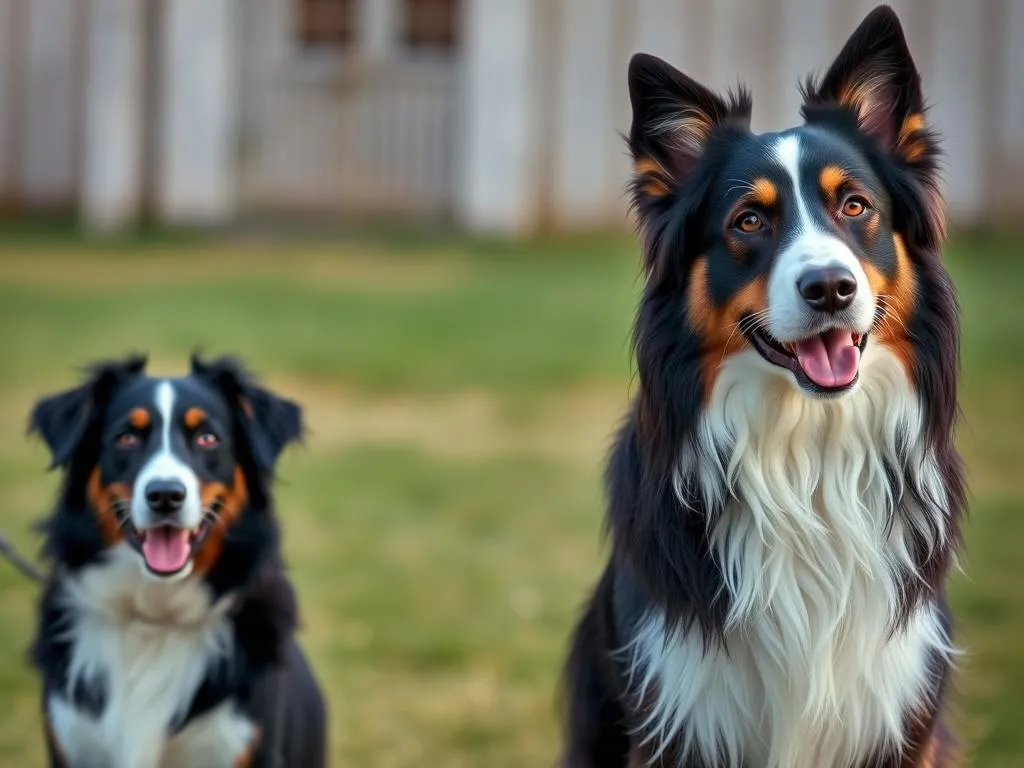
Introduction
Service dogs play a vital role in assisting individuals with disabilities, providing support that enhances their quality of life. These highly trained animals perform essential tasks, from guiding individuals with visual impairments to offering emotional support for those with psychiatric conditions. Among the plethora of breeds available, Border Collies often come up in conversations about service dogs. Known for their intelligence and work ethic, the question arises: do Border Collies make good service dogs?
Understanding Service Dogs
Definition of Service Dogs
Service dogs are specifically trained to perform tasks that assist individuals with disabilities. These tasks are directly related to the person’s disability and are performed in a public setting. Unlike therapy dogs, which provide comfort and emotional support to groups of people, and emotional support animals, which offer companionship, service dogs are recognized by law as working animals with specific rights and responsibilities.
Roles and Responsibilities of Service Dogs
Service dogs can take on various roles, such as:
- Guiding individuals who are visually impaired
- Alerting individuals with hearing impairments to sounds
- Assisting those with mobility issues by providing physical support
- Detecting medical conditions, such as impending seizures or low blood sugar
The reliability and extensive training of service dogs are crucial, as their work directly impacts their handler’s safety and well-being.
Overview of Border Collies
Breed Characteristics
Border Collies are medium-sized dogs known for their athletic build, with a height typically ranging from 18 to 22 inches. Their coat can be either rough or smooth and often comes in various colors, including black and white, red, and tricolor.
In terms of temperament, Border Collies are exceptionally intelligent, highly energetic, and eager to please. They thrive on activity and mental stimulation, making them both a joy and a challenge for their owners.
Strengths of Border Collies
-
High Intelligence and Trainability: Border Collies are widely regarded as one of the smartest dog breeds. Their ability to learn commands quickly makes them excellent candidates for service training.
-
Strong Work Ethic: This breed is known for its desire to work. Their enthusiasm for tasks can be beneficial when performing service duties.
-
Versatility: Border Collies can adapt to various roles, whether as a mobility assistance dog or in psychiatric support.
Potential Challenges with Border Collies
Despite their strengths, potential challenges exist when considering Border Collies as service dogs:
-
High Energy Needs: Border Collies require significant physical exercise and mental stimulation. Without adequate activity, they may develop behavioral issues.
-
Herding Instincts: Their natural herding behavior can lead to nipping or chasing, which may not be suitable in a service dog context.
-
Need for Engagement: These dogs need regular training and socialization to prevent boredom, which can lead to misbehavior.
Assessing Border Collies as Service Dogs
Trainability and Intelligence
When evaluating whether Border Collies make good service dogs, their trainability is a significant factor. These dogs respond exceptionally well to positive reinforcement and can learn a variety of commands and tasks. Compared to other breeds commonly used as service dogs, such as Labs and Golden Retrievers, Border Collies stand out for their quick learning and adaptability.
Suitability for Specific Service Roles
Border Collies excel in specific service roles, particularly where their intelligence and eagerness to work can shine. They are well-suited for:
- Mobility Assistance: Their strong build allows them to help individuals with balance and stability.
- Psychiatric Support: Their ability to bond with humans can make them effective emotional support animals.
However, they may not be the best choice for guiding visually impaired individuals, as they lack the calm demeanor often found in breeds specifically trained for this role.
Socialization and Temperament
Socialization is crucial for any service dog, and Border Collies are no exception. Their interactions with strangers and other animals can be influenced by their training and social experiences. With proper exposure and training, they can be friendly and well-mannered. However, a lack of socialization can result in nervousness or overexcitement, which could impede their service work.
Training a Border Collie as a Service Dog
Basic Training Requirements
To become effective service dogs, Border Collies must first undergo basic training. Essential commands include:
- Sit
- Stay
- Come
- Heel
Consistency and patience are key during training, as these dogs thrive on routine and clear expectations.
Advanced Training Techniques
Once basic commands are mastered, advanced training can begin. This specialized training is tailored to the specific tasks the dog will perform. Resources for training can include:
- Professional Trainers: Engaging a trainer with experience in service dog training can be invaluable.
- Online Courses: Various platforms offer courses designed for service dog training.
Ongoing Training and Maintenance
Training doesn’t stop once the dog has completed its initial training. Ongoing training and socialization are vital to maintain skills and ensure the dog remains well-behaved. Regular practice of commands and social interactions can reinforce good behavior and adaptability.
Real-Life Experiences and Case Studies
Success Stories
Many success stories showcase Border Collies excelling as service dogs. For instance, one family shared how their Border Collie, Max, provided crucial support for their son with autism. Max’s ability to sense anxiety and provide comfort made a significant difference in their daily lives.
Challenges Faced
However, there are also challenges faced by handlers of Border Collies as service dogs. One individual recounted their experience with a Border Collie that struggled with distractions in public settings. This led to difficulties in performing tasks reliably. The lesson learned was the importance of consistent training and choosing the right environment for the dog’s needs.
Conclusion
In summary, Border Collies can make good service dogs, but their suitability largely depends on the specific needs of the handler and the dog’s training and temperament. Their intelligence, eagerness to work, and versatility are significant assets. However, potential challenges, such as high energy levels and herding instincts, should be carefully considered.
Ultimately, prospective service dog handlers should evaluate their individual circumstances and the unique characteristics of Border Collies before making a decision. Each dog, regardless of breed, has its own personality and capabilities, making thorough assessment and training essential for success.









